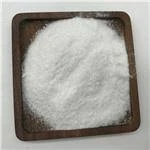Understanding API Active Pharmaceutical Ingredients in Pharmaceuticals
Active Pharmaceutical Ingredients (APIs) are the essential components in pharmaceutical products that produce the intended therapeutic effect. In the world of pharmaceuticals, the API is the backbone of any medication, serving as the active chemical responsible for the desired outcome in treating diseases, alleviating symptoms, or curing various health conditions.
Understanding API Active Pharmaceutical Ingredients in Pharmaceuticals
APIs can be derived from various sources, including synthetic methods, natural extraction, or biotechnology. Synthetic APIs are chemically produced through laboratory processes, which allows for precise control over their chemical structure and properties. On the other hand, natural APIs are sourced from plants, animals, or minerals, retaining their natural therapeutic properties. Biotechnology has further revolutionized API development, particularly in the production of biologics—complex drugs made from living organisms—such as monoclonal antibodies and vaccines.
what does api mean in pharmaceuticals

The development of an API involves rigorous research and development (R&D), including identifying the right compound, synthesizing it in the lab, and conducting preclinical and clinical trials to establish its safety and efficacy. Regulatory agencies, such as the U.S. Food and Drug Administration (FDA) and the European Medicines Agency (EMA), have stringent guidelines for the approval of APIs. These regulations ensure that APIs are manufactured under strict Good Manufacturing Practices (GMP) to maintain their quality and consistency.
Once an API is approved and enters the market, it is often combined with excipients—inactive substances that serve as a vehicle for the active ingredient. Excipients can enhance the stability, bioavailability, and overall delivery of the API in the body. The formulation process is crucial, as it determines how the drug is released, absorbed, and utilized by the body.
The global API market is substantial, influenced by factors such as the increasing prevalence of chronic diseases, the demand for generic drugs, and the rise of biologics. Countries like India and China have emerged as significant players in API manufacturing due to their cost-effective production capabilities and established supply chains. However, the COVID-19 pandemic revealed vulnerabilities in the global supply chain, prompting many companies to reconsider their sourcing strategies and enhance local manufacturing capabilities.
In conclusion, APIs play a fundamental role in the pharmaceutical industry, serving as the core ingredient responsible for the therapeutic effects of medications. From discovery and production to regulation and delivery, understanding APIs is essential for anyone involved in healthcare, pharmaceuticals, and drug development. As the industry continues to evolve, focusing on innovation, quality, and supply chain resilience will be critical to ensuring the continued availability of effective medicines for patients worldwide.

